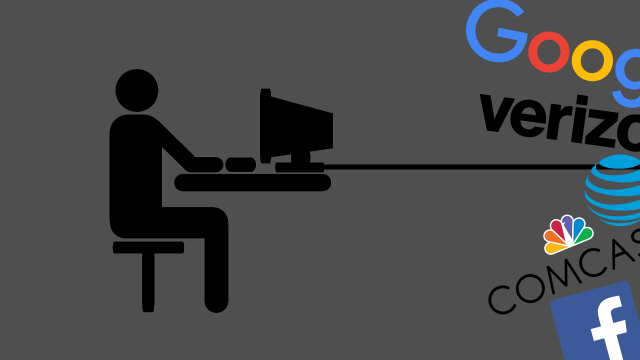Privacy advocates across the US let out a collective sob this week when its Congress dismantled a set of Obama-era internet privacy rules. In effect, the Republicans just gave big telecom companies unfettered access to your browsing history and will even let ISPs sell that data for profit. As we’ve argued before: this sucks.
Image: Gizmodo
There are ways to cope. Running a virtual private network (VPN) or using Tor are two of the best ways to maintain your privacy in the face of both corporate and government surveillance. However, some of the privacy tips floating around the web in the wake of Capitol Hill’s latest fuck up are not only bad, they’re downright incorrect and, in some cases, even dangerous.
So we’re going to go ahead and debunk the top three terrible privacy tips currently in circulation. It’s for your own good.
1. Deleting your browsing history doesn’t work
This appears to make sense, so much so that even political groups with tens of thousands of followers are encouraging people to do it. The only problem is that deleting your browsing history absolutely, positively does not keep ISPs, advertisers, or the government from tracking you on the web.
The reason for this is simple: that “clear history” button in your web browser only deletes the browser history on your local hard disk. In fact, some of the data still sticks around, albeit tucked away in your DNS cache. You can clear that cache by restarting your computer, but it will already be way too late. Plenty of parties — including ISPs, advertisers, and the government — store your browsing history in real time, and that data is just one search warrant away from being revealed. Even without a warrant, companies can still use the data to serve you more relevant ads or simply sell it to a marketer.
Clearing your search history, by the way, also only affects your own hard drive. Google has all that stuff saved, really well. If you want to search the internet without getting tracked, use DuckDuckGo.
So don’t bother deleting your browsing or search history in the pursuit of privacy. You allowed outsiders to snoop on you the second you opened your browser without using a VPN. Although not entirely impervious to snooping, VPNs will absolutely offer you more protection than a dumb “clear history” button.
2. Using an incognito window doesn’t work
This would be handy if it worked the way that Google, Apple, and Mozilla suggest it does. Private browsing and incognito windows do offer you an extra layer of privacy, enough that your porn sites won’t autofill in a regular browser window and your searches aren’t saved locally. That’s pretty much where the privacy benefits stop, however.
Much like clearing your browser history, incognito and private browsing windows only prevent your data from being stored locally. That means that all of your activity can still be tracked by individual websites, apps, ISPs, advertisers, and the government. In other words, when you think you’re wearing some magical invisibility cloak in an incognito window, you’re actually just wearing a silly hat. The rest of the internet can still see your junk.
Want a true private browsing experience? Use Tor. The anonymous internet service offers several layers of protection, masking your identity and online activity from the prying eyes of huge corporations and big government. A VPN is another solid option.
3. Installing an ad blocker doesn’t work
This seems slightly counterintuitive — which is part of why it’s risky. Ad blockers like Adblock Plus and uBlock Origin prevent third parties from running certain scripts that can identify where you are and what you like (among other things). The protection is far from comprehensive, however. After all, the software is designed to block ads and prevent nasty malware from loading in your browser. It’s not exactly a catch-all privacy tool.
There are other add-ons and extensions that are specifically designed to protect your privacy. Examples include Disconnect, Do Not Track Me, and Privacy Badger. There are a couple of reasons to be wary about these applications, though. One, they’re still not going to offer the same level of protection as a VPN or Tor. And two, this type of software can be — and has been — hacked. The only thing worse than giving Google or your ISP more data about yourself, is letting hackers get ahold of it.
In conclusion, if you like privacy, you should fall in love with a VPN service and/or Tor. Don’t listen to anyone who tells you otherwise.
